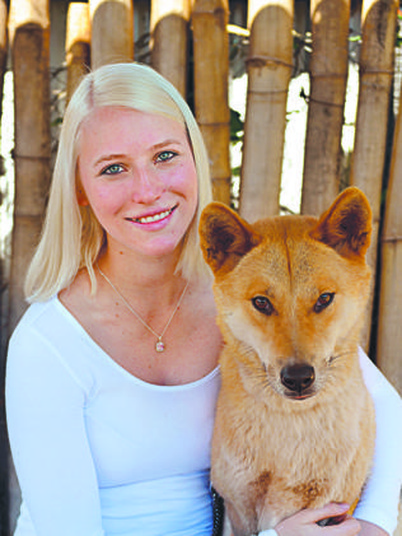A DINGO STOLE MY BABY
|
In August 1980, the Chamberlain family were camping near Uluru in the Northern Territory. On the night of August 17 Lindy and Michael Chamberlain reported that their nine week old daughter Azaria had been taken from their tent by a dingo. Azaria’s body was never found. Lindy Chamberlain was subsequently tried for murder and spent more than three years in prison. She was released in 1986 when a piece of baby’s clothing was found near a dingo lair in the area, and new inquests were opened. In 2012 the Chamberlain’s version of events was officially confirmed by a coroner.
This tragic story understandably shocked families across the globe in the 1980s. Consequently, the Dingo was branded internationally as an aggressive and vicious animal and has been heavily persecuted since. Incidents on Frazer Island have further enforced this view, resulting in further culling of the species. Looking at the situation in its entirety, the Dingo is a wild predator with a natural game drive to catch food. Just like a Lion in Africa or a Tiger in Asia, the Dingo is Australia’s apex terrestrial predator, and its only means of survival is to catch and consume prey. Human or animal, a wild predator simply sees a food source. This is not an act of ferocity or malice, and an animal should not be demonised for hunting. It is simply performing its natural role to survive, just as humans have traditionally hunted and fished for food. Sources have confirmed that Northern Territory tourism operators regularly encouraged Dingoes to enter into coaches and buses to receive a food from passengers during the 1980s. With this information in hand, we can certainly understand why a Dingo may have approached the Chamberland’s campsite in search of food. It is a case of people unintentionally creating dangerous situations for all involved. These events are best summarised by Zahra Chamberlain, Azaria Chamberlain’s half-sister, who is training to become a dingo handler and is advocating to save the species. During a media interview in September 2014, Zahra spoke about her views on dingoes: "Unfortunately for the Dingo, it looks similar to the domestic dog, and people do not give the Dingo the same level of respect that they may give a lion or tiger. Injuries tend to occur when humans approach Dingoes in the wild, or in areas where dingoes have been regularly fed by humans." |
Azaria Chamberlain's half sister Zahra Chamberlain is training to be a dingo handler. Picture: Queensland Zoo, The Big Pineapple.
We’re past all that terrible negative history... Given my family’s past, I still love dingoes as I do any other Australian wildlife. |
Zahra's story "Devoted to Dingoes" which aired on 9 September 2014 can be viewed at:
http://tenplay.com.au/channel-ten/the-project/top-stories-september-2014/chamberlain-devoted-to-dingoes











